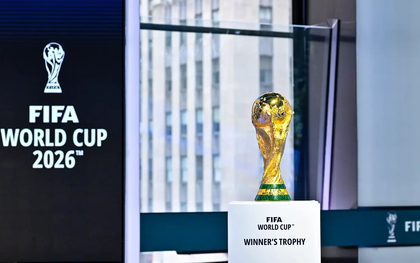US host cities outline legacy vision for 2026 FIFA World Cup
By IANS | Updated: June 11, 2025 11:48 IST2025-06-11T11:43:53+5:302025-06-11T11:48:33+5:30
New York, June 11 One year ahead of the 2026 FIFA World Cup, representatives from all 11 United ...

US host cities outline legacy vision for 2026 FIFA World Cup
New York, June 11 One year ahead of the 2026 FIFA World Cup, representatives from all 11 United States host cities have presented plans to ensure the tournament drives long-term community impact, from cultural equity and infrastructure to youth sports access.
At a panel held Monday at the Paley Center for Media in New York, host city officials shared initiatives aimed at strengthening cultural inclusion, expanding youth opportunities, and investing in public infrastructure.
Among the most detailed efforts is Seattle's Chinese American Art Legacy Project, a 250,000 U.S. dollars city-funded program designed to highlight the historical contributions of Chinese Americans in the city's Chinatown-International District, reports Xinhua.
April Putney, speaking for Seattle's host committee, said the project reflects the city's "people-based legacy" approach. "We're working hand-in-hand with local communities," Putney said. "It's not just about hosting matches, it's about who gets to be part of the story."
In response to a question from Xinhua, Putney said that the Chinatown district - located just steps from the stadium - is central to Seattle's fan and cultural programing. "We want local businesses and residents to benefit directly," she added.
Other cities are taking similarly localized approaches: Los Angeles is awarding grants to community nonprofits; Miami is curating a culturally immersive Fan Festival; Kansas City is piloting a new regional transit model; and Dallas is investing in youth soccer infrastructure and media capacity.
While FIFA oversees the tournament's competitive structure, U.S. cities are focused on making the event inclusive and locally meaningful. Free public viewing zones, grassroots partnerships, and regional branding efforts are part of a broader strategy to use the World Cup as a platform for long-term civic benefit.
The 2026 tournament will span 16 cities across the U.S., Canada, and Mexico, with the United States hosting 60 matches, including the final.
Disclaimer: This post has been auto-published from an agency feed without any modifications to the text and has not been reviewed by an editor
Open in app